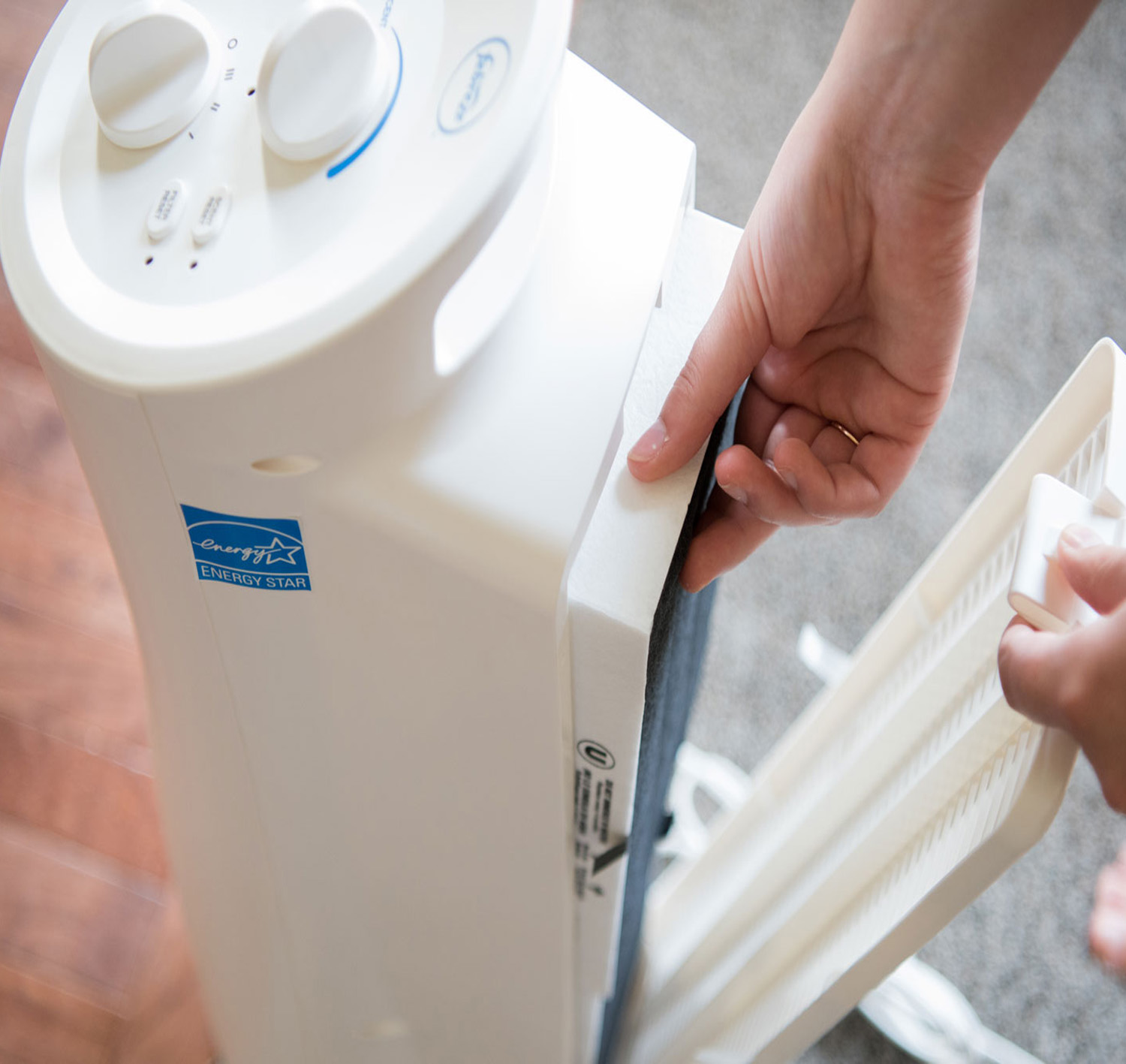If you bought an air purifier to enhance the quality of the air within your house, you might be wondering how to tell if it’s working properly. Fortunately, there are a few warning indications that might let you know if your air purifier is operating properly. This article (How Do I Know If My Air Purifier Is Working Effectively) will help you grasp the important signs that your air purifier is actually doing its job properly, from observable changes in air quality to decreased allergy symptoms.
General indicators of air purifier effectiveness
There are a number of general indicators that may be used to evaluate an air purifiers performance in terms of effectiveness. A considerable decrease in airborne particles is one of the most observable indicators of a successful air purifier. Dust, pet dander, pollen, and other typical allergens that are in the air may start to disappear. This may be seen by keeping an eye on how clean your home’s surfaces are and how frequently you need to dust and vacuum.
An efficient air purifier will result in an overall increase in air quality in addition to a noticeable reduction in airborne particles. You could notice that there are less unpleasant odors or stale air particles, and that the air seems fresher and cleaner. This is especially advantageous for people who have breathing problems like asthma or allergies since they might breathe better and have fewer allergic reactions.
Speaking of allergic reactions, a trustworthy air purifier ought to result in a reduction in their frequency. A properly working air purifier can make all the difference if you or any members of your family are susceptible to seasonal allergies or have allergies to specific allergens, including pet dander or mold spores. By assisting in filtering out certain allergens, it can lessen the likelihood of allergy reactions and improve indoor comfort.
The ability of an air purifier to lessen odor and odor-causing compounds is another sign of its efficiency. A quality air purifier should be able to successfully eliminate these unpleasant odors from your house, whether they are caused by cooking odours, pet odors, or cigarette smoke. You might detect a fresher and cleaner air smell, which contributes to the environment’s pleasant and welcoming ambiance.
Last but not least, a good air purifier ought to promote respiratory health. This means that it helps to lessen irritants that can worsen respiratory disorders in addition to filtering out airborne particles and allergens. A reliable air purifier can offer relief and help create a healthier indoor environment if you or a loved one has asthma, bronchitis, or other respiratory conditions.
Monitoring air quality
Monitoring the air quality in your house on a frequent basis is essential to ensuring that your air purifier is operating as intended. Various techniques and observations can be used to do this.
One efficient approach to keep tabs on changes in the air pollution levels in your house is to use an air quality monitor. Real-time readings of pollutants like particle matter, volatile organic compounds (VOCs), and carbon dioxide levels are provided by these monitors. You can verify if your air purifier is successfully removing these contaminants and upholding a better interior atmosphere by frequently monitoring the readings.
Observing pollutant accumulation on your air purifiers filters is another approach to keep an eye on the quality of the air. The filters will build up dust, debris, and other pollutants over time that they have removed. You may get a decent idea of your air purifiers efficacy by routinely checking, cleaning, or changing the filters.
Insights can also be gained by keeping an eye on changes in interior odors and general air quality. The presence of less offensive odors, cleaner air, and a fresher scent are all indications that your air purifier is functioning properly.
It is advised to keep track of these findings and how the air quality varies over time. This can assist you in monitoring any increases or decreases in the operation of your air purifier and implementing any necessary corrections as needed.
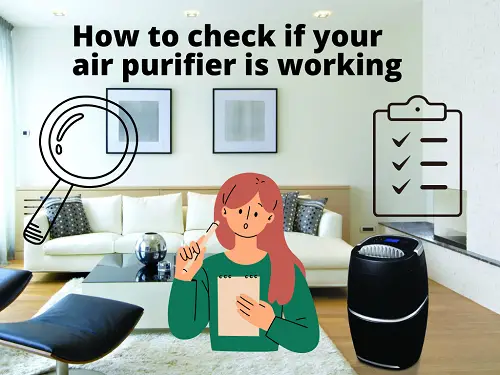
Examining filter efficiency
Filters are essential to the operation of an air purifier since they are in charge of catching and holding airborne particles. Therefore, evaluating the performance of the filters is crucial when figuring out how effective your air purifier is.
Following the manufacturer’s suggested timetable for filter replacement is one way to guarantee the best performance from your air purifier. To maintain the effectiveness of your air purifier, it is crucial to follow these recommendations regarding the lifespan of the various types of filters. Filters can continue to capture pollutants and maintain acceptable air quality if they are routinely replaced.
Another way to measure the effectiveness of your air purifier is by visually assessing the state of the filters. Check the filters frequently for blockage, discoloration, or damage signs. Your air purifier may not be properly catching particles if the filter is unclean or damaged, thus this issue needs to be taken care of right away.
You can utilize filter efficiency testing kits to further confirm the filter’s efficacy. These kits offer a quantitative evaluation of how well the filter works to catch particles of various sizes. You may assess the effectiveness of your air purifiers filters and decide whether maintenance or replacement is necessary by carrying out these tests on a regular basis.
Last but not least, reading the manufacturer’s specifications might help you understand how effective the filters in your air purifier are. The type of filter, its capabilities, and the percentage of particles it can collect are normally disclosed by manufacturers. You may evaluate the effectiveness of your air purifier by contrasting these parameters with how well it really performs.
Assessing noise levels
While improving indoor air quality is an air purifiers main goal, it’s crucial to take into account how it will affect the atmosphere of your home as a whole. A properly working air purifier should promote ease and relaxation, but excessive or unexpected noise levels can take away from those feelings.
To gauge noise levels, start by contrasting the actual noise that your air purifier produces with the manufacturer’s recommended noise levels. The standard needs to state the decibel (dB) noise level for each fan speed. If the actual noise level is unusually loud or exceeds the range that was given, there may be a problem with the air purifier.
It’s also crucial to listen for loud or strange noises. A malfunction or loose parts may be indicated by any loud, buzzing, rattling, or irregular noises, even though air purifiers normally emit a quiet hum or white noise. It is best to get in touch with the manufacturer or a specialist for a more thorough evaluation if you hear these sounds.
Keep in mind that noise levels can change depending on the fan speed and the particular air purifier model. In order to ascertain whether the air purifier is running within acceptable limits, it is critical to evaluate the noise levels at various settings.
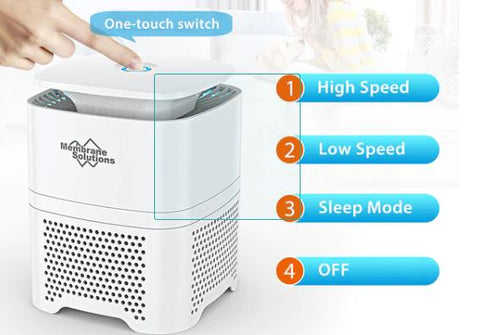
Measuring airflow
For an air purifier to circulate and filter the air in a room properly, there must be adequate airflow. By keeping an eye on the airflow, you can make sure that your air purifier is operating at its best and that the filtered air is being spread uniformly around the room.
Quantitative data regarding the airflow generated by your air purifier can be obtained using an anemometer, a tool for measuring air velocity. Measure the air velocity at various fan speeds by positioning the anemometer close to the air purifiers outlet. The measurements must be accurate and fall within the range that the manufacturer has stated. The performance of the air purifier may be affected if the airflow is noticeably less or greater than anticipated.
Equally crucial is making sure the air is distributed consistently. A perceptible and even airflow should be produced by the air purifier in the ideal scenario. Check to see if there are any spots in the room where the airflow seems to be weaker or if there are any locations where the air is stagnant. In certain situations, changing the air purifiers orientation or position may help the airflow.
The performance of the air purifier can be visually tracked over time by recording any apparent variations in airflow. You can find any problems and address them with the proper maintenance or adjustment by routinely noting any increases or decreases in the airflow.
Checking for ozone emission
Some people worry about ozone emission when considering the efficacy of air purifiers. Three oxygen atoms make up the chemical known as ozone, which can be toxic in large doses. It is crucial to check whether your air purifier releases any ozone and to make sure the levels are within acceptable ranges.
First, find out how much ozone the air purifier emits. These details must be included by manufacturers in their product specifications. Look for air purifiers with the claim “ozone-free” on the label or with ozone emission levels that are within the suggested limits established by regulatory bodies. This demonstrates that the air purifier doesn’t produce a lot of ozone.
Second, pay attention to any symptoms that you or any members of your family may suffer as a result of exposure to ozone. Coughing, tightness in the chest, shortness of breath, irritation of the eyes or throat, and even a worsening of pre-existing respiratory diseases are some of these symptoms. Such symptoms may suggest elevated ozone levels and the need to stop using that specific air purifier if you experience them while the air purifier is running.
Last but not least, a more accurate way to figure out the ozone levels in your house is to use an ozone detector. Real-time readings of the ozone content in the air can be obtained using these devices. Using an ozone detector can help you monitor and make sure that the levels of ozone emission stay within acceptable limits if you are worried about them.
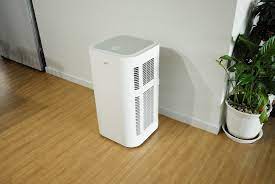
Verifying energy consumption
Monitoring your air purifiers energy use is crucial for both financial and environmental reasons, but it can also hint at how successful it is in some cases. An air purifier that uses too much energy could not be working properly or might have broken parts.
Start by frequently keeping an eye on how much energy your air purifier is using. Observe how much electricity it uses over a certain period of time. Compare these consumption rates to the manufacturer’s recommended standards. If the energy use of the air purifier is much higher than anticipated, this can indicate inefficiency or point to a problem that needs to be addressed.
Any anomalous energy spikes can be found by comparing actual energy use to specs. A fault or the need for repair may be indicated by sudden increases in energy use. On the other hand, a considerable drop in energy usage without any modification in the performance of the air purifier may point to a problem with the power source or internal parts.
It is advised to get in touch with the manufacturer or a specialist for a more thorough evaluation and guidance if you detect any unusual energy consumption patterns or have questions about the effectiveness of your air purifier.
Considering room size coverage
The size of the room where an air purifier is positioned can affect how effective it is. It is crucial to think about whether your air purifier is appropriate for the size of the space it is meant to clean.
Verify that the air purifier is made to fit the space that it will be operated in. The maximum recommended room size for each model is normally disclosed by the manufacturer. Make sure the air purifier you select has a square footage that is equal to or more than the room you intend to utilize it in. Inadequate air purification may arise from using an air purifier that is too small for a big room.
Even if the air purifier is intended for smaller rooms, consider how well it operates in bigger areas. While some air purifiers may be able to circulate and clean the air in larger spaces, others may find it difficult to keep the ideal air quality. It is advised to select a model with a greater CADR (Clean Air Delivery Rate) and robust airflow capabilities if you intend to utilize your air purifier in a bigger place than its recommended capacity.
You can make sure that your air purifier is able to successfully cleanse the air in your specific space and deliver the desired results by taking into account the room size coverage of your air purifier.
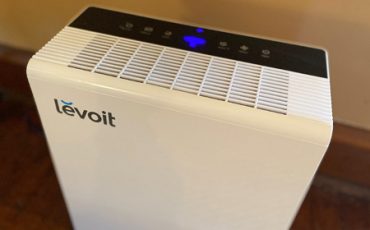
Seeking professional testing
It can be helpful to get the help of a qualified indoor air quality specialist for a more thorough evaluation of the air quality and the effectiveness of your air purifier. These experts are equipped with the skills and tools needed to carry out thorough testing and offer in-depth analyses of your air purifiers performance.
The performance of the air purifier can be assessed more objectively by hiring an expert in indoor air quality. They can monitor contaminants precisely, evaluate the overall air quality, and pinpoint any problem regions. They can provide suggestions on how to improve the air quality and assist in locating probable sources of pollutants that may be having an adverse effect on it.
By asking for an air quality test, you might learn important details about the individual pollutants and their quantities in your house. This information can help you assess how well your air purifier removes harmful pollutants. The expert can evaluate additional elements that may impact air quality and air purifier effectiveness, such as ventilation and humidity levels.
While hiring a professional tester may result in higher expenditures, they can provide a more thorough inspection and provide you piece of mind about your air purifiers performance and the overall indoor air quality of your home.
Considering the air purifier model
Your air purifiers individual model and its characteristics must be taken into account while assessing its efficacy. This can be accomplished by reading consumer and expert reviews, comparing the model’s characteristics to those of competing models on the market, and more.
Examining consumer reviews offers perceptions into actual experiences and viewpoints regarding the effectiveness of the air purifier. Look for evaluations from actual customers and take into account their opinions on things like air purification efficiency, noise levels, filter upkeep, and general satisfaction. You can gain a better grasp of the advantages and disadvantages of the particular model you own with the help of this information.
Expert reviews from reliable sources can offer a more technical and in-depth study of air purifiers than customer reviews alone. Look for professional opinions from businesses or people with expertise in consumer testing, environmental health, or indoor air quality. These analyses frequently evaluate variables like energy usage, noise levels, filter performance, and air purification efficiency. Reviews written by experts can give you a well-rounded viewpoint and assist you in making decisions about the efficacy of your air purifier.
Another method of determining your air purifiers efficacy is to compare its characteristics to those of comparable models available on the market. Take into account elements like CADR (Clean Air Delivery Rate), filter type and efficiency, suggested room size, noise levels, and other features. You may judge how your air purifier stacks up to other models and ascertain whether it is operating as it should by contrasting these features.
Keep in mind that various air purifiers are made for various uses and space requirements. Your evaluation procedure should be guided by the particular needs and specifications of your living space to guarantee that the air purifiers performance meets your expectations.
Conclusion (How Do I Know If My Air Purifier Is Working Effectively?)
In conclusion, determining if your air purifier is working properly requires looking at a variety of signs, including a noticeable drop in airborne particles, an improvement in the quality of the air, a reduction in the frequency of allergic reactions, a decrease in odor, and an improvement in respiratory health. To ascertain your air purifiers overall effectiveness, it is crucial to monitor air quality, assess filter effectiveness, evaluate noise levels, measure airflow, check for ozone emission, confirm energy consumption, take into account room size coverage, seek professional testing, and review the air purifier model. You may have faith in your air purifiers efficiency and take advantage of cleaner, healthier air in your house by adhering to these recommendations.
Recommendations: Coway Air Purifier

